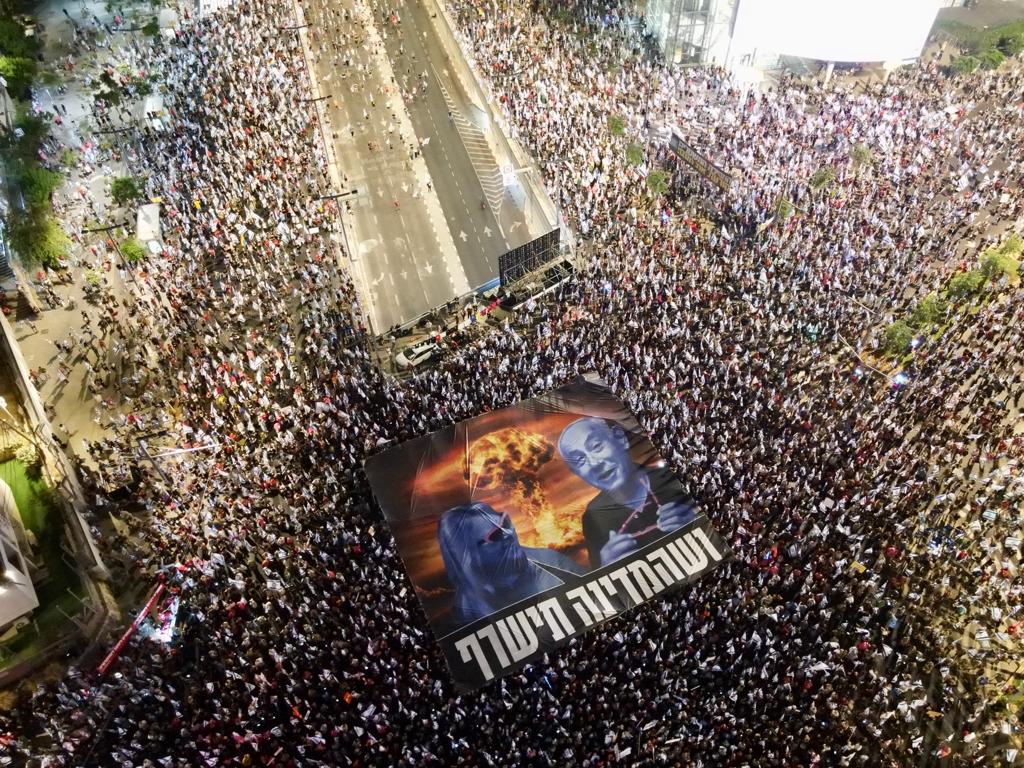The protesters packed the streets of the coastal city of Tel Aviv on Saturday, with Israeli media estimating the turnout to stand at around 100,000.
“I am here to protest. This is our 34th consecutive week of protesting,” one protester told Reuters, adding that Prime Minister Benjamin Netanyahu’s extremist cabinet “is trying to control the supreme court and that’s control all the three systems in Israel.”
Another protester said the far-right cabinet’s “drastic acts” will finally “destroy Israel.”
Demonstrators also hit the streets in other cities, including the holy occupied city of al-Quds, where thousands rallied outside President Isaac Herzog’s residence, and the city of Beersheba in the central part of the occupied territories.
Addressing the protest outside Herzog’s residence, Warda Sada, a political activist, stated, “We have gotten to a situation in … Israel in which a group of complete racists is controlling” the entire cabinet.”
The far-right cabinet’s overhaul scheme, which some denounce as a “judicial coup,” seeks to dispossess the Supreme Court of the power to overrule politicians’ decisions. It also seeks to give the regime’s politicians more say in the process of appointing judges to the court.
Proponents say the plan helps redistribute the balance of power between the politicians and the judiciary. Opponents, however, accuse Netanyahu of trying his hand at a power grab. They say the prime minister, who is on trial on several counts of corruption charges, is also attempting to use the scheme to quash possible judgments against him.
The protests have gained momentum since the end of July, when the Knesset passed the first bill of the overhaul plan, which restricted the Supreme Court’s ability to declare the cabinet’s decisions “unreasonable.”
Reacting to the plan, more than 10,000 Israeli reserve troops, including members of the intelligence unit 8200 and air force pilots, have said they would no longer show up for duty on a voluntary basis. The decision has prompted the Israeli top brass to warn about changes to the regime’s “war-readiness.”
Earlier in August, Israel’s Supreme Court began hearing the first in a series of appeals that are aimed at striking down the bill that has been approved by the Knesset.
